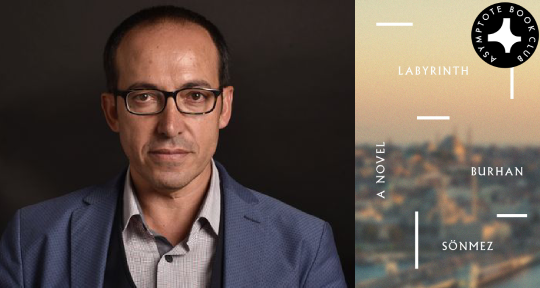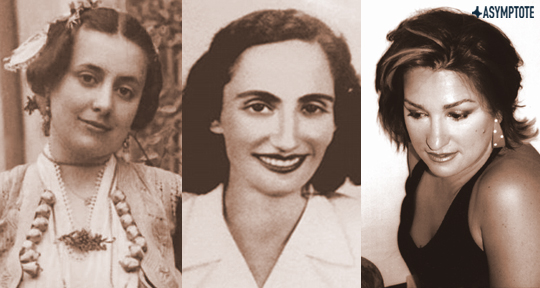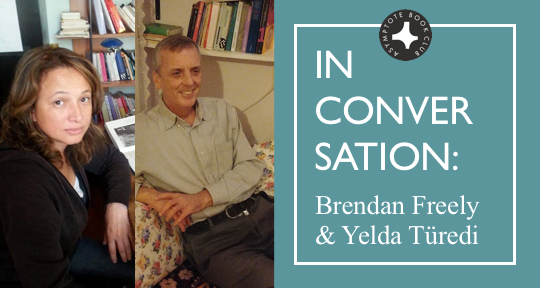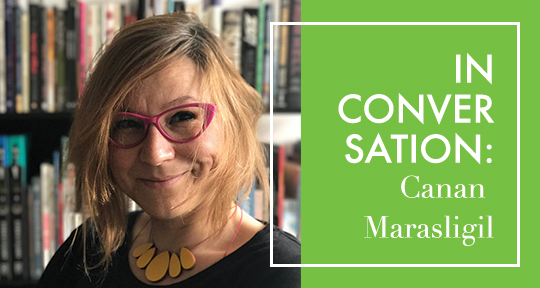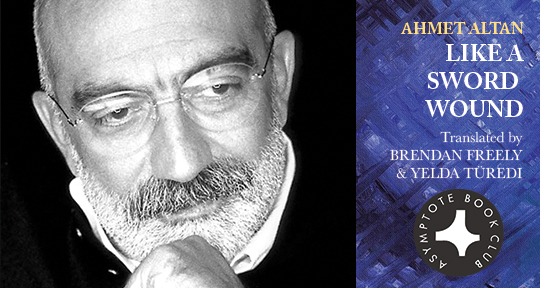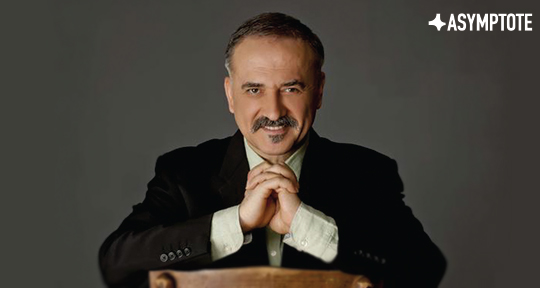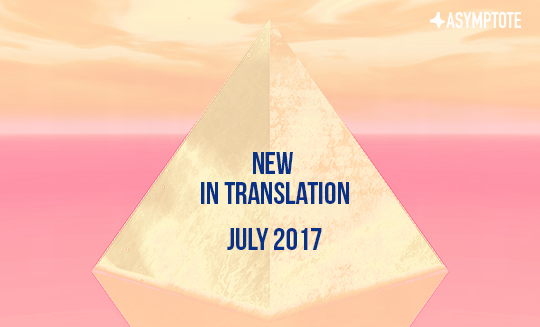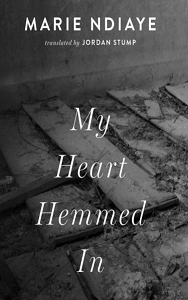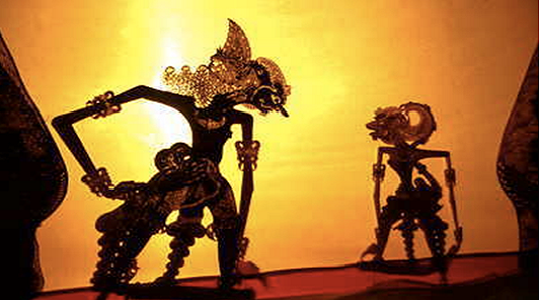To live, to remember, and to forget—these are the mainstays of nearly every narrative both real and imagined, and this month, we have selected Burhan Sönmez’s masterful novel, Labyrinth, which traverses these themes with a lucidly Borgesian, yet stirringly original hand. A highly anticipated publication in Sönmez’s award-winning body of work, this profound book navigates the psychogeography of Istanbul to interrogate that most mysterious creature: the self.
The Asymptote Book Club aspires to bring the best in translated fiction every month to readers in the US, the UK, and the EU. You can sign up to receive next month’s selection on our website for as little as USD15 per book; once you’re a member, you can join the online discussion on our Facebook page!
Labyrinth by Burhan Sönmez, translated from the Turkish by Ümit Hussein, Other Press, 2019
Boratin Bey knows that his name is Boratin, that he lives in Istanbul, that he is a blues musician with a tattoo on his back, but he doesn’t know why. And, more urgently, he doesn’t know why he jumped from Bosphorus Bridge—a fall he survived but which has now caused total memory loss. At the beginning of Burhan Sönmez’s Labyrinth (deftly translated by Ümit Hussein), Boratin wakes, disorientated in his unfamiliar apartment with no knowledge of who he is. Luckily, he has a few anchors that can guide him through his now estranged surroundings. Firstly, his bandmate, Bek, who takes care of practical matters, informs him of his likes, dislikes, habits and tries to settle him back into his old rhythm. His sister helps as well, taking great joy in remembering the past and recounting tales of his childhood to Boratin over the phone.
His experience of the world may only just be commencing, but it doesn’t take long before the big philosophical questions start to appear. “Did I choose and buy the furniture in this house?” and “Have I always lived alone?” are suddenly supplanted by “What does beautiful mean?” and “What brings on the desire to die?” A change that is, of course, understandable as Boratin is suddenly forced to step into his own life through the eyes of a complete stranger to it. READ MORE…

